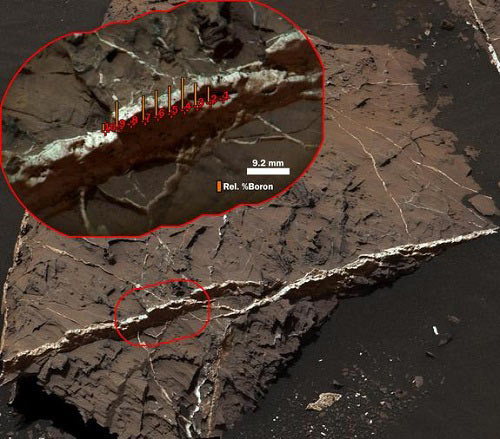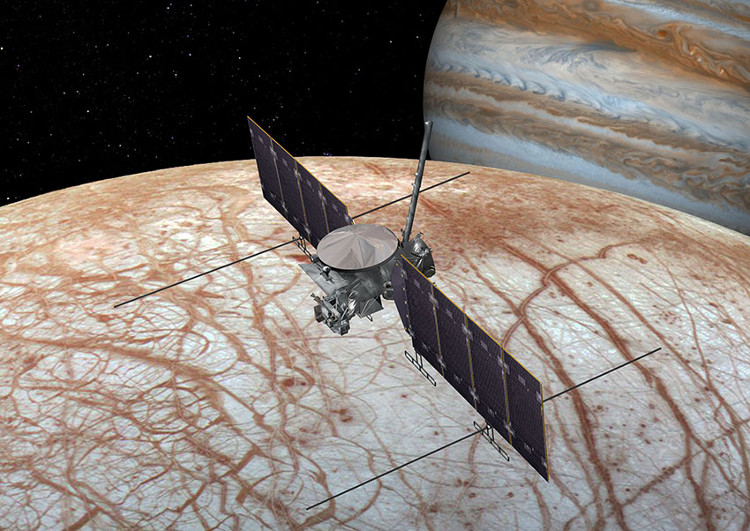Places in the solar system may contain extraterrestrial life
Mars, Pluto, Jupiter and Saturn gather conditions suitable for alien life to form and develop.
The Institute of Alien Intelligence (SETI) suggests that the solar system may contain microbial life forms and list the places considered potential candidates for life detection, International Business Times on September 24 reported.
Mars

High boron density is found in the Catabola mineral chain on Mars.(Photo: NASA).
The red planet is among the top candidates to seek life. With more and more information about the chemical composition and environment on the planet, the hope of finding life there is not unrealistic. The US Aerospace Agency (NASA) discovered boron, the basic material for life, on Mars.
The moon Jupiter

Spacecraft will land on the moon Europa within the next 15 years.(Photo: NASA).
Europa is a promising candidate whose life exists in the ocean of liquid water below the surface. The ocean floor hot spots with many small volcanoes provide energy for the development of life, according to Shostak.
Ganymede is the largest moon in the solar system, which can support life to form and grow in the ocean below the thick ice covering the surface.
Callisto is another moon with both the atmosphere and the ocean.
Saturn moon

The southernmost spray of the moon Enceladus.(Photo: NASA).
NASA discovered the proper chemical composition to support the membrane that exists on Titan, Saturn's largest moon. According to Futurism, this moon also has many large lakes filled with natural gas.
Enceladus, another moon of Saturn, is considered the most appropriate place for life to form. Enceladus has energetic vents into the air."You don't need to land, you don't have to drill, just collect some materials to bring to Earth and maybe you'll find alien life , " Shostak said.
The Pluto
Researchers believe that Pluto has many pockets of liquid water beneath the surface. According to Shostak, anywhere with liquid water can contain bacteria. The New Horizons probe observes the blue sky and the red soft ice on Pluto, and finds countless small areas with open-band soft ice.
- The new model quickly identifies life outside the solar system
- Life may exist on Saturn's moon
- Hope to find extraterrestrial life on Saturn's Titan moon
- Life can exist in meteorite belts
- The fake life in the solar system has 2 suns?
- Еuroрa hides 3 million tons of extraterrestrial organisms
- He tried to find extraterrestrial life
- The largest solar system outside the solar system revolves around two stars
- 9 suitable places to find extraterrestrial life
- Survive extraterrestrial life?
- Are there more 'livable' planets than Earth?
- Discovering scorpions living on Venus?
 Van Allen's belt and evidence that the Apollo 11 mission to the Moon was myth
Van Allen's belt and evidence that the Apollo 11 mission to the Moon was myth The levels of civilization in the universe (Kardashev scale)
The levels of civilization in the universe (Kardashev scale) Today Mars, the sun and the Earth are aligned
Today Mars, the sun and the Earth are aligned The Amazon owner announced a secret plan to build a space base for thousands of people
The Amazon owner announced a secret plan to build a space base for thousands of people